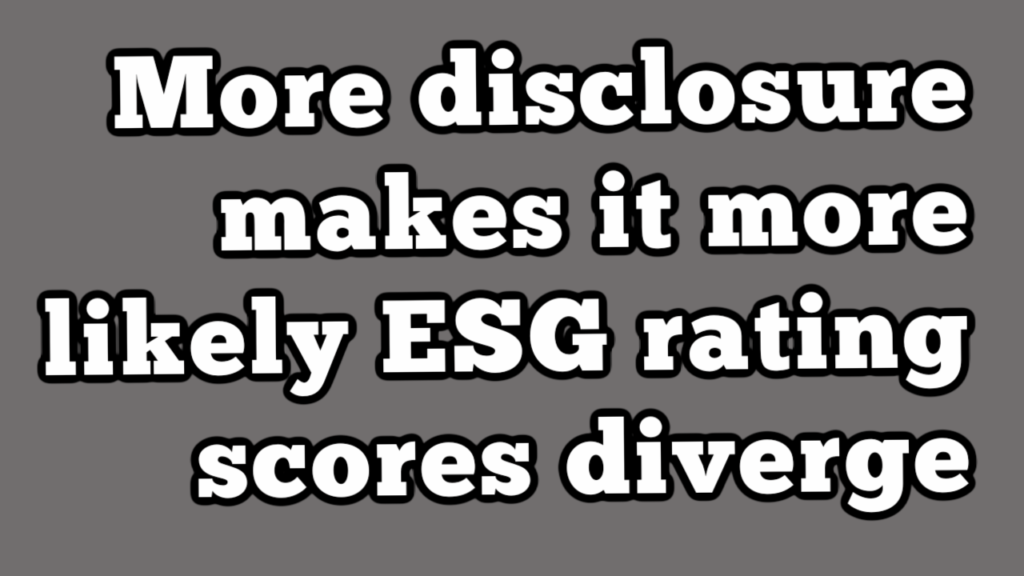More disclosure makes it more likely that ESG rating scores will diverge

– Study finds that more disclosure by a company makes it more likely that the various ESG rating agencies will produce divergent scores.
– Some are critical of how ESG ratings aren’t accurate enough to reflect how companies truly strategize and perform in the ESG arena.
Harvard Professor Anywhere Sikochi and George Serafeim recently released this study that found that the more information a company discloses about its ESG practices, the more rating agencies disagree on how well that company is performing along these dimensions. According to the research, a 10% increase in corporate disclosure is associated with a 1.3-2% increase in ESG score variation among major ratings providers, which all interpret and process disclosures differently.
And this LinkedIn note by Zsolt Lengyel drew a lot of comments (you should read those too):
I wonder how an innovative guillotine – built from FSC certified wood, net-zero CO2 emission steel, operated by a certified psychologist using bio-tranquilizers – would score on Refinitiv, an LSEG business’ – and other rating agencies. Why? BAT (score: 91/100) & Coca-Cola Hellenic Bottling Company– (90) & Glencore (90) are on the top of their #FTSE100 ESG list.
Time to wake up: proprietary black-box ESG ratings do more harm than benefit as they fuel greenwashing and greenwishing and an 𝐢𝐧𝐡𝐞𝐫𝐞𝐧𝐭𝐥𝐲 𝐢𝐧𝐬𝐮𝐟𝐟𝐢𝐜𝐢𝐞𝐧𝐭 𝐢𝐧𝐜𝐫𝐞𝐦𝐞𝐧𝐭𝐚𝐥 approach towards sustainability. We need to get serious about this as 𝐰𝐢𝐭𝐡𝐨𝐮𝐭 𝐜𝐨𝐦𝐩𝐮𝐥𝐬𝐨𝐫𝐲 𝐝𝐢𝐬𝐜𝐥𝐨𝐬𝐮𝐫𝐞 𝐨𝐟 𝐟𝐮𝐥𝐥 𝐯𝐚𝐥𝐮𝐞-𝐜𝐡𝐚𝐢𝐧 𝐝𝐚𝐭𝐚/𝐢𝐦𝐩𝐚𝐜𝐭𝐬 & 𝐞𝐟𝐟𝐞𝐜𝐭𝐢𝐯𝐞 𝐬𝐮𝐬𝐭𝐚𝐢𝐧𝐚𝐛𝐢𝐥𝐢𝐭𝐲 𝐭𝐡𝐫𝐞𝐬𝐡𝐨𝐥𝐝𝐬 𝐚𝐧𝐝 𝐚𝐥𝐥𝐨𝐜𝐚𝐭𝐢𝐨𝐧𝐬 we are heading towards a Planetary guillotine.
